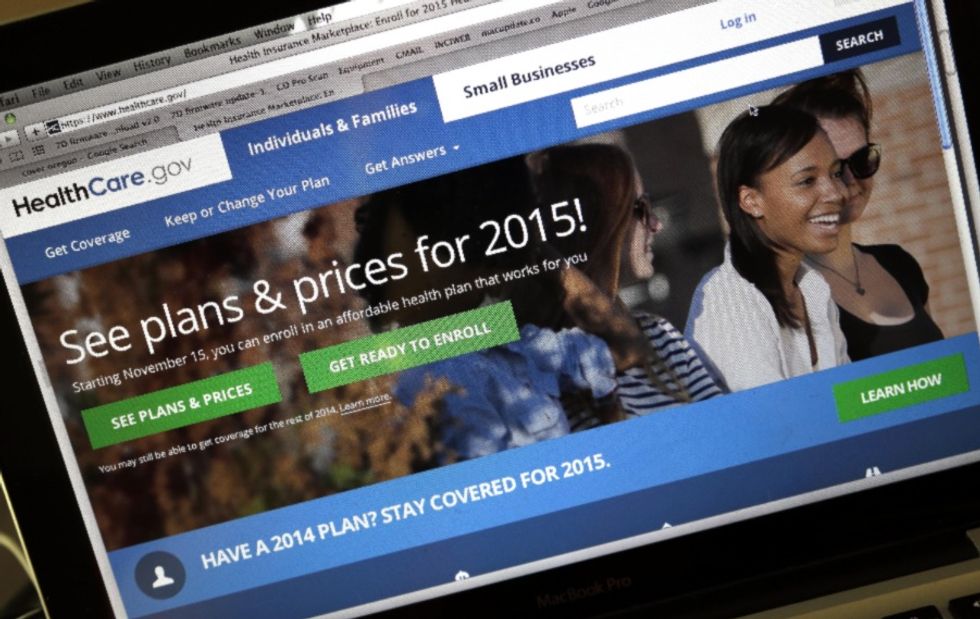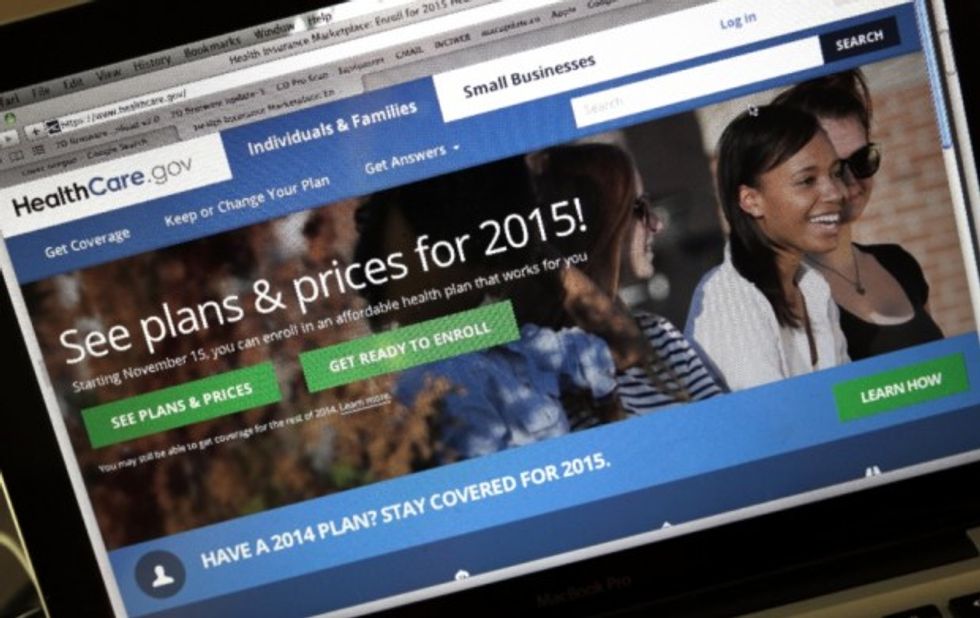
Image source: AP/Don Ryan

The launch of HealthCare.gov, the federal government’s online health insurance marketplace, in October 2013 was a complete disaster, a reality even the most ardent supporters of Obamacare admit. There were multiple site crashes, long waiting times for anxious consumers, and one delay after another.
Nearly two years after its failed launch, there still remain more questions than answers, but perhaps the recent King v. Burwell case has subtly lifted the veil on the real reason for the crash.
Then-Health and Human Services Secretary Kathleen Sebelius emphatically denied Obama knew anything about the website’s obvious flaws prior to the botched launch of the site. Republicans sharply criticized Sebelius and the Obama administration, and many GOP leaders questioned both Obama’s truthfulness and his competence.

“Either Secretary Sebelius is lying to protect President Obama or the president needs to get control of his signature health care law,” said Reince Priebus, chairman of the Republican National Committee.
After months of congressional investigations and Sebelius’ eventual resignation, the pursuit of the truth about the website disaster eventually faded away, and Congress and the media moved on to more pressing matters.
It’s still unclear why, after countless wasted tax dollars and more than three full years to build the site after Obamacare's passage in 2010, the government failed to produce a working website that could accomplish the simple task of selling health insurance policies.
At the time of the HealthCare.gov crash, Obama’s media spin doctors insisted the site’s failure was caused by “extremely high” traffic, as Sebelius reiterated in an interview with CNN’s Sanjay Gupta. According to Sebelius, nearly 20 million people visited the site in just the first three weeks, a volume site designers simply weren’t prepared for.
This excuse, repeated countless times by White House Press Secretary Jay Carney and others, makes little sense upon close examination. If the Obama administration expected its signature program to be successful, why wouldn’t nearly 20 million people visit the site? Shouldn’t HealthCare.gov’s designers have been prepared for the possibility a good many of the more than 30 million people who were said to be without health insurance could visit the site within the first few weeks?
Many have chalked this blunder up to just another failure of big government, but I think a much more logical explanation explains the website’s failure—and it has to do with cases such as King v. Burwell.
When the website crashed in 2013, numerous legal cases had the potential to end in disaster for Obama’s most important piece of legislation. One of the most ominous objections to Obamacare, presented by the plaintiffs in King, was that although its plain language seemed to indicate subsidies were available only to those who purchase health insurance from state-established exchanges, the Obama administration was providing subsidies to individuals through the federal health insurance marketplace as well.
The defense employed by the Obama administration against the claim that such an action violated the obvious mandates in the Obamacare legislation had to be that the language referring to the “states” was vague and open to interpretation. The real intent of the law, the Obama administration insisted, was for the subsidies to be available to everyone, regardless of which exchange health insurance was purchased in.
This helps explain the obvious flaws of the HealthCare.gov website.
If the Obama administration, at the time of the passage of Obamacare, expected most states to establish their own exchanges because it knew that’s what the law required in order to gain access to the subsidies, it makes sense the federal website wasn’t designed with 20 million visitors in mind. Nearly every state would presumably have its own marketplace and dedicated website, so traffic to the federal exchange would be limited.
At the time of the HealthCare.gov crash, and in the months leading up to it, many states refused to establish their own exchanges, which meant the federal site would have to handle a much greater volume than was originally expected. At that point the Obama administration would have had to make a difficult choice: Either recognize HealthCare.gov would likely be overwhelmed and admit it had not expected many states to rely on the federal exchange, or it could pretend the inevitable rollout failure was simply a flaw in the website’s design and take the heat for being ill-prepared.
Allowing itself to look incompetent was a political risk, to be sure, but the administration absolutely could not acknowledge it had expected the states to establish their own exchanges with their own websites. Such an admission would indicate the administration knew the law compelled states to create their own exchanges in order to have access to needed federal subsidies, the very argument Obama would later reject in King.
Although it doesn’t prove the case, the billowing smoke behind this fire is more conspicuous than ever: The HealthCare.gov website was never intended to handle the millions of people who eventually tried to use it, because the plan had always been, as Obamacare clearly lays out, for the states to create their own exchanges rather than rely on the federal government—just as the plaintiffs in King v. Burwell argued.
Justin Haskins (Jhaskins@heartland.org) is editor of The Heartland Institute. You can follow him @TheNewRevere.
–
TheBlaze contributor channel supports an open discourse on a range of views. The opinions expressed in this channel are solely those of each individual author.
Justin Haskins